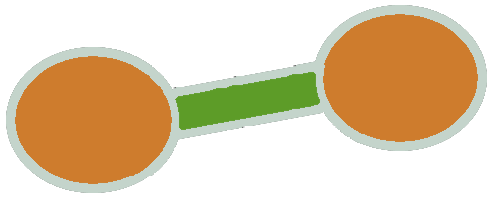Ninatoka
 concept
conceptFructose
Fructose is an abundant monosaccharide in the human diet that the body needs to metabolize. It is present in honey, fruits, vegetables, and high-fructose corn syrup used during manufacturing beverages (soft drinks) and food. Their consumption results in a significant amount of added sugars entering the diet, approximately half of which is fructose. Sucrose (table sugar) converts to fructose and glucose by acid hydrolysis in the stomach, and sucrase-isomaltase cleavage in the small intestine. Transport and metabolism of fructose do not require insulin; only a few tissues such as the liver, intestine, kidney, adipose tissue, and muscle can metabolize it. Glucose and fructose have similar metabolic fates because most of the dietary fructose converts into glucose. The mechanism of fructose sensing helps to understand the metabolism and potential pathophysiological consequences of excessive sugar intake.
Ref:
Dholariya SJ, Orrick JA. Biochemistry, Fructose Metabolism. 2022 Oct 17. In: StatPearls [Internet]. Treasure Island (FL): StatPearls Publishing; 2023 Jan–. PMID: 35015453.
Join Ninatoka!!
NinatoKa's goal is to support you as a therapist in unravelling the illness pathway from symptoms to cause, and to help you detect potential interventions.
Go to Explore to start your discovery!
Go to Learn to scroll through newly added data.
Go to Contribute to contribute to the Ninatoka database.
You can rate content up or down and add comments if you agree or disagree.



